Asnat Greenstein-Messica
JSON Whisperer: Efficient JSON Editing with LLMs
Oct 06, 2025Abstract:Large language models (LLMs) can modify JSON documents through natural language commands, but current approaches regenerate entire structures for each edit, resulting in computational inefficiency. We present JSON Whisperer, a framework that enables LLMs to generate RFC 6902 diff patches-expressing only the necessary modifications-rather than complete documents. We identify two key challenges in patch-based editing: (1) LLMs often miss related updates when generating isolated patches, and (2) array manipulations require tracking index shifts across operations, which LLMs handle poorly. To address these issues, we introduce EASE (Explicitly Addressed Sequence Encoding), which transforms arrays into dictionaries with stable keys, eliminating index arithmetic complexities. Our evaluation shows that patch generation with EASE reduces token usage by 31% while maintaining edit quality within 5% of full regeneration with particular gains for complex instructions and list manipulations. The dataset is available at: https://github.com/emnlp2025/JSON-Whisperer/
Visual Editing with LLM-based Tool Chaining: An Efficient Distillation Approach for Real-Time Applications
Oct 03, 2024Abstract:We present a practical distillation approach to fine-tune LLMs for invoking tools in real-time applications. We focus on visual editing tasks; specifically, we modify images and videos by interpreting user stylistic requests, specified in natural language ("golden hour"), using an LLM to select the appropriate tools and their parameters to achieve the desired visual effect. We found that proprietary LLMs such as GPT-3.5-Turbo show potential in this task, but their high cost and latency make them unsuitable for real-time applications. In our approach, we fine-tune a (smaller) student LLM with guidance from a (larger) teacher LLM and behavioral signals. We introduce offline metrics to evaluate student LLMs. Both online and offline experiments show that our student models manage to match the performance of our teacher model (GPT-3.5-Turbo), significantly reducing costs and latency. Lastly, we show that fine-tuning was improved by 25% in low-data regimes using augmentation.
Automatic Machine Learning Derived from Scholarly Big Data
Mar 06, 2020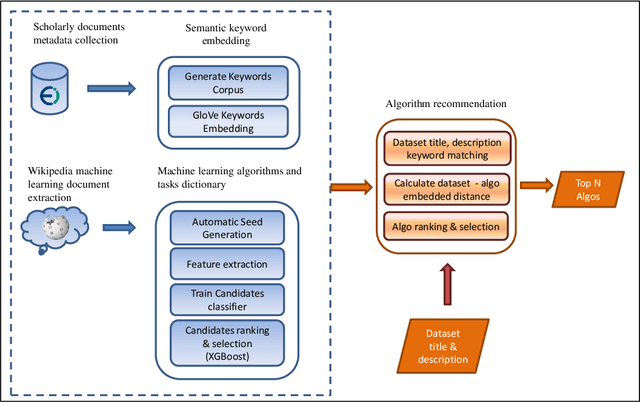
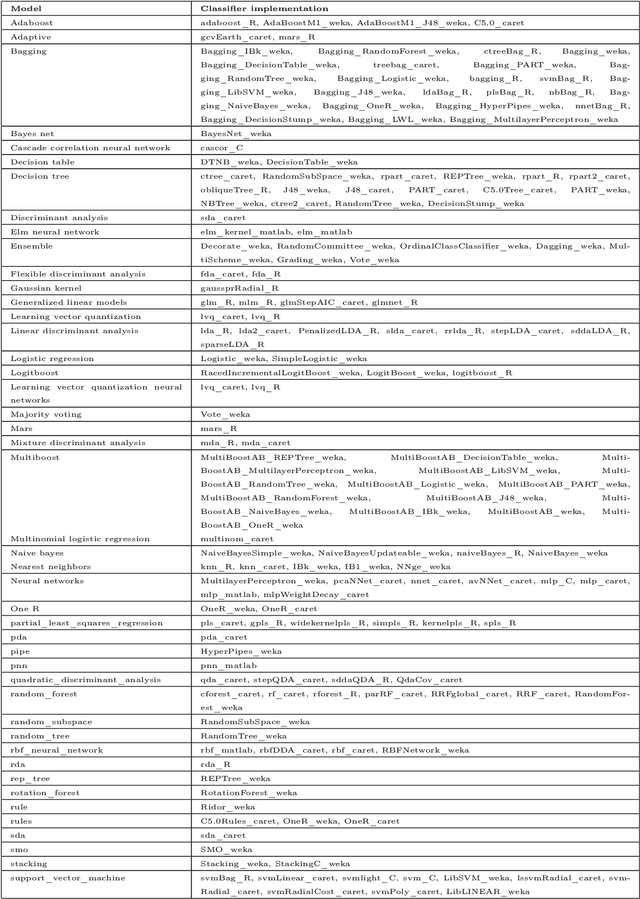
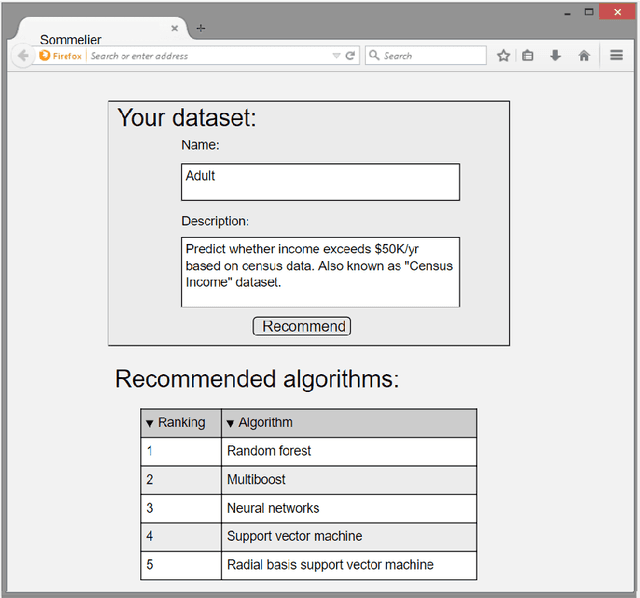
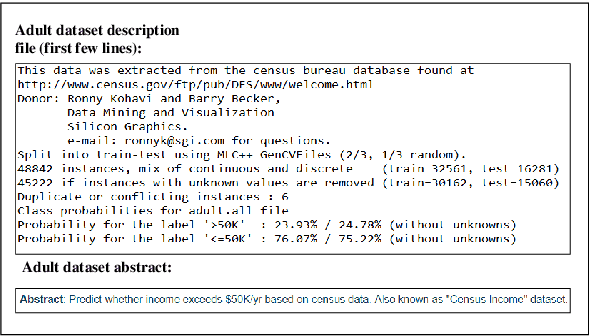
Abstract:One of the challenging aspects of applying machine learning is the need to identify the algorithms that will perform best for a given dataset. This process can be difficult, time consuming and often requires a great deal of domain knowledge. We present Sommelier, an expert system for recommending the machine learning algorithms that should be applied on a previously unseen dataset. Sommelier is based on word embedding representations of the domain knowledge extracted from a large corpus of academic publications. When presented with a new dataset and its problem description, Sommelier leverages a recommendation model trained on the word embedding representation to provide a ranked list of the most relevant algorithms to be used on the dataset. We demonstrate Sommelier's effectiveness by conducting an extensive evaluation on 121 publicly available datasets and 53 classification algorithms. The top algorithms recommended for each dataset by Sommelier were able to achieve on average 97.7% of the optimal accuracy of all surveyed algorithms.
New Item Consumption Prediction Using Deep Learning
May 12, 2019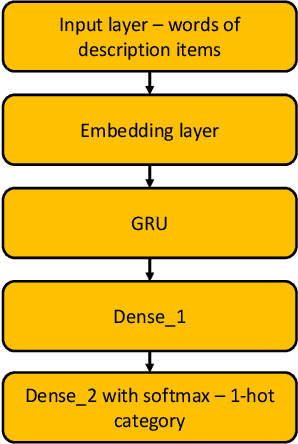

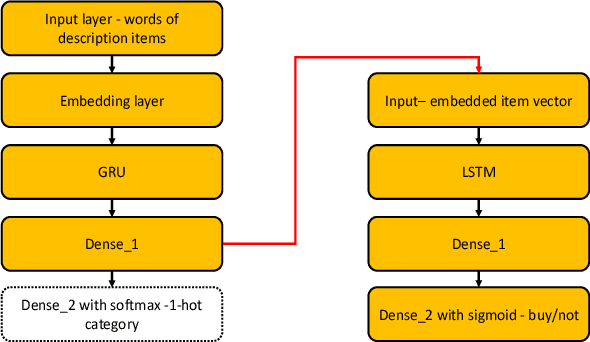
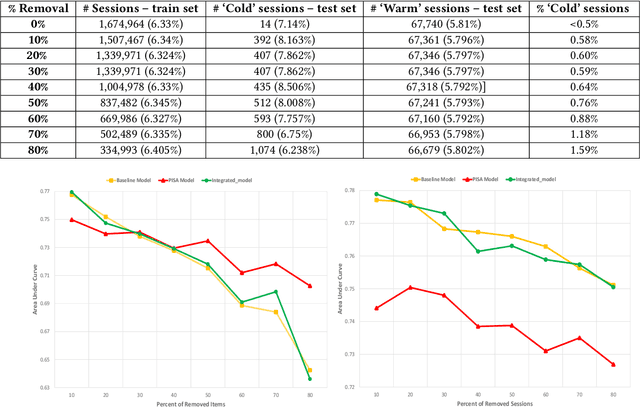
Abstract:Recommendation systems have become ubiquitous in today's online world and are an integral part of practically every e-commerce platform. While traditional recommender systems use customer history, this approach is not feasible in 'cold start' scenarios. Such scenarios include the need to produce recommendations for new or unregistered users and the introduction of new items. In this study, we present the Purchase Intent Session-bAsed (PISA) algorithm, a content-based algorithm for predicting the purchase intent for cold start session-based scenarios. Our approach employs deep learning techniques both for modeling the content and purchase intent prediction. Our experiments show that PISA outperforms a well-known deep learning baseline when new items are introduced. In addition, while content-based approaches often fail to perform well in highly imbalanced datasets, our approach successfully handles such cases. Finally, our experiments show that combining PISA with the baseline in non-cold start scenarios further improves performance.
 Add to Chrome
Add to Chrome Add to Firefox
Add to Firefox Add to Edge
Add to Edge